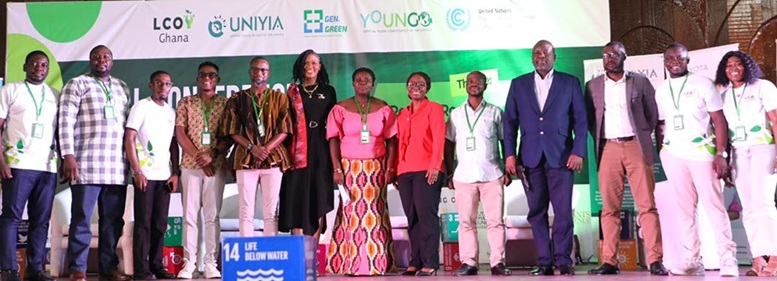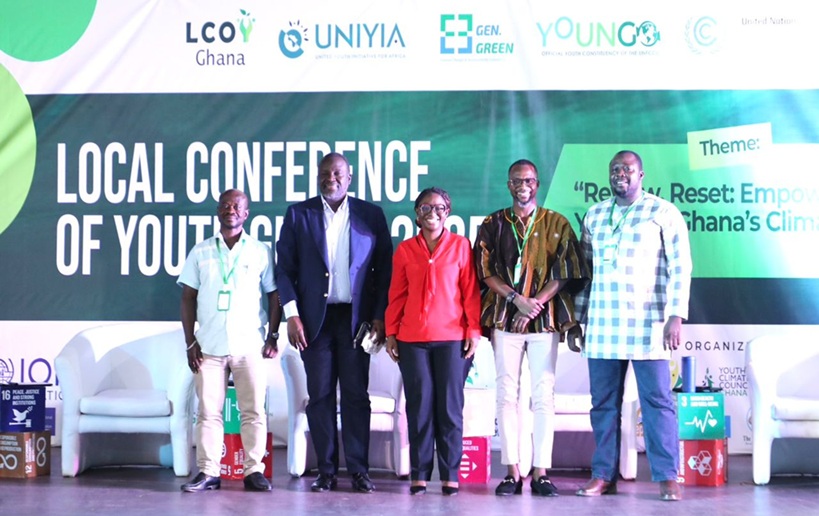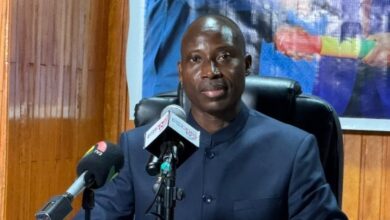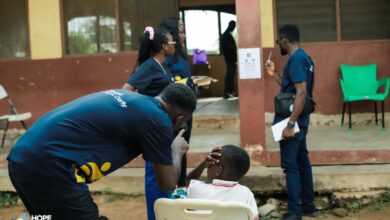Ghana Puts Youth at Center of Climate Action, Links Sustainability to Economic Growth

Ghana is betting on its youth to anchor the country’s climate strategy and drive future economic growth, as policymakers unveiled a five-year roadmap that places young people at the forefront of sustainability and green development.
At the 2025 Local Conference of Youth on Climate Change (LCOY Ghana), held on the theme “Review, Reset: Empowering Youth for Ghana’s Climate Future,” government officials, UNDP Ghana, and development partners launched the Ghana Youth Climate Action Roadmap (GYCAR). The framework is designed to channel youth innovation into climate solutions that can also generate jobs and strengthen Ghana’s green economy.
Ghana spends hundreds of millions of dollars annually tackling the impacts of climate change, from flooding in Accra to crop losses in cocoa-growing regions. Officials argue that empowering young people to lead climate solutions can reduce these costs, while creating new opportunities in renewable energy, sustainable agriculture, and green technology.

“This year marks the 10th anniversary of the Paris Agreement. Staying within its targets is not just an environmental goal—it’s an economic imperative,” said Dr. Abdul-Razak Saeed, Head of Environment and Climate at UNDP Ghana. “By equipping youth to lead, we are preparing the workforce for the industries that will define Ghana’s future economy.”
The roadmap aligns with Ghana’s Nationally Determined Contributions (NDCs) under the Paris Agreement, while also positioning young entrepreneurs to tap into growing pools of international climate finance. Global carbon markets, sustainable agriculture funds, and renewable energy investments represent billions in potential financing that Ghanaian youth-led ventures could access, UNDP officials said.
Business leaders at the conference pointed to opportunities in sectors such as solar mini-grids, clean cooking solutions, and climate-smart agriculture. These industries, if scaled, could not only reduce Ghana’s import bills such as the $600 million annual spend on poultry and rising rice imports, but also create sustainable employment in rural areas, where joblessness remains high.
The conference also served as a platform to prepare Ghana’s youth delegation for COP30 in Brazil, where they are expected to push for greater African access to global climate financing and technology partnerships.
“Climate action is not only about protecting the environment; it is about securing livelihoods and positioning Ghana competitively in a green global economy,” said Noah Bugre, convenor of LCOY Ghana.
By formally integrating youth into its climate agenda, Ghana aims to convert climate risk into economic opportunity, leveraging its young population to lead in sustainability, innovation, and enterprise.




